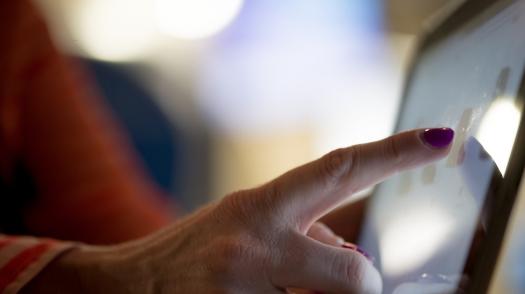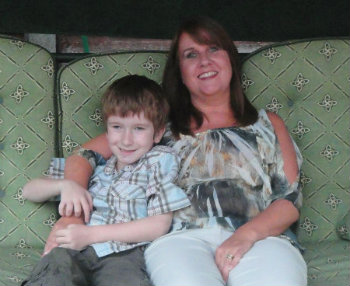
Non-traumatic brain injury causes
Read about how non-traumatic brain injuries can happen.
Karen and Mark’s son Paul had a brain haemorrhage when he was nine. After his injury, he had difficulties with language, his memory, and the movement in his left arm.

Published: May 2012. Child’s age at time of brain injury: nearly 9 years.
Mum Karen explains tells their story:
Paul went to bed as a perfectly healthy child on the fourth of December, but he woke the next morning being sick.
We took him to a local hospital where we were told he’d had a massive haemorrhage on the left side of his brain.
They took us up to another hospital where he was operated on straight away. It was a terrible shock, and they said Paul had only three minutes to live, but he got through it. We couldn’t believe it was anything serious because he had been such a healthy boy before.
After the surgery, it was a case of taking things day-by-day. The doctors weren’t 100% sure Paul would be able to talk again.
If he was, then he would have to learn all over again. But on Boxing Day he started signalling and the following week he actually spoke.
It was sometimes difficult to tell people about what had happened to Paul, because he looks like any other child. But when you see the scan, there’s a big part of his brain that is injured and it won’t grow back.
Paul’s brain has got to re-route and find new ways of doing things, but other people can’t always see that.
Paul’s short-term memory is one of his biggest difficulties. If you ask him to go and do something he might forget.
He’s gone back to a younger level with his reading and writing. It also affected Paul’s eyesight.
If you were to talk to Paul, he’d say it was the trouble he has moving his left arm. He can’t do shoelaces or anything too intricate, but he’s slowly getting better.
Paul’s 15-year-old sister, Lauren has coped very well. We have made allowances for him, and I think it does annoy her a bit, but that’s only natural and she has been fantastic.
She wanted to be included at the hospital and we asked the doctors to keep her in the loop.
Paul’s back at school now. If you ask him how his day was, he’ll say it was a great day, because it’s a lovely school.
But then the next day he’ll say: ‘I don’t want to go to school!”. He’s just like other boys in that respect.
But his speech and language has come on leaps and bounds, and it’s good to be around other children.
He was out of the loop for a whole year, and was only around adults. His confidence has got much better since being back at school, and that’s been a really lovely thing to see.

Read about how non-traumatic brain injuries can happen.

Our 'cognitive functions' describe the complex things that go on inside our head.

Read our guide to managing the return to school after an acquired brain injury.